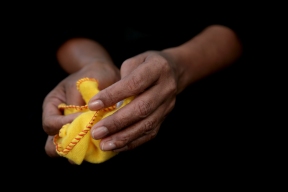
Tuesday’s vote to pass a living wage ordinance will result in landmark gains for many working families. Not only does the ordinance raise the minimum wage for many workers — it also gives the city’s housekeepers, nannies and personal care assistants their first minimum wage protections in state history, the result of years of efforts to gain respect, recognition and inclusion in labor laws.
“This groundbreaking vote means that Chicago’s household workers will finally gain the same protections that most other workers have had for decades,” says Myrla Baldonado, a domestic worker and organizer at Latino Union of Chicago. “Domestic workers often go unrecognized, but the caring work that they do makes all other work possible.”
Though Tuesday’s vote will expand basic minimum wage protections to hundreds of domestic workers in Chicago, it will leave out thousands of other domestic workers around the state. State and federal labor laws have historically excluded domestic workers, who are primarily women of color.
The Chicago Coalition of Household Workers is working with several state legislators to advance the Illinois Domestic Workers’ Bill of Rights, which will remove discriminatory language and give domestic workers equal rights. Domestic workers outside Chicago aren’t the only ones who are still left out. The new ordinance continues to treat Chicago’s tipped workers unequally, raising their minimum wage to just $5.95 per hour. Workers at businesses with fewer than four employees are also excluded.
“The City Council ordinance will improve conditions for workers, but it falls far short of the $15 living wage that workers have been fighting for,” says Latino Union Executive Director Eric Rodriguez. “It’s just the beginning of what we need in order to raise the floor for working families.”









